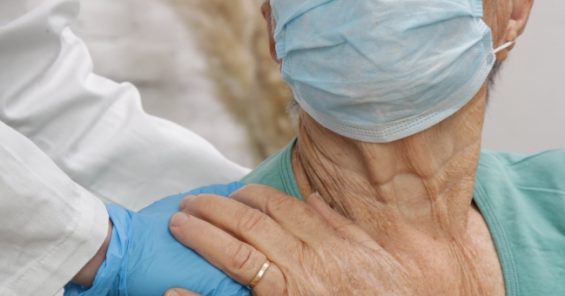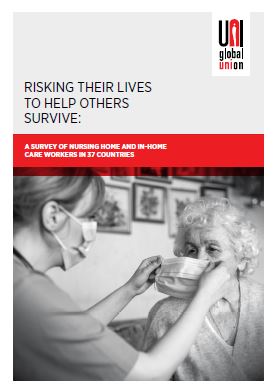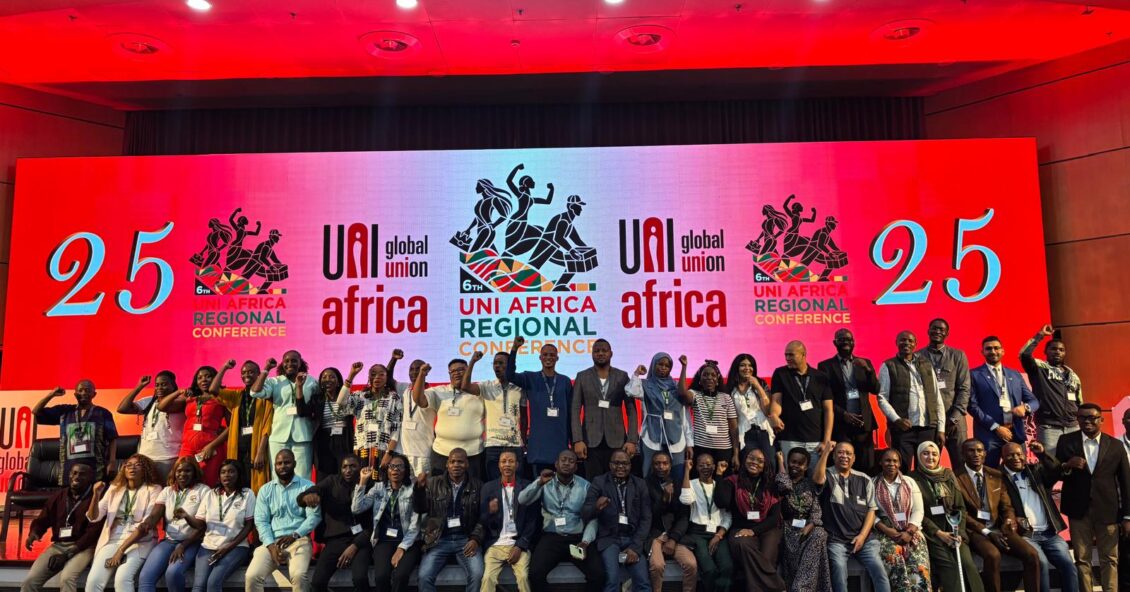A new study released today by UNI Global Union exposes pervasive staffing shortages, poverty pay, targeted harassment, and dangerous conditions in the global care system one year into the pandemic. UNI believes the survey is the first documenting care worker conditions worldwide during COVID-19.
More than half of care workers UNI surveyed said their pay did not provide them with a decent standard of living, meaning they were unable to secure basic needs such as housing, food, and transportation. Over 30 percent are still without adequate access to PPE, and the percentage is higher in the countries hardest hit by the virus. Sixty-five percent of the workers experienced the death of a co-worker or patient reported no support from employers for anxiety, fear, and other mental health issues associated with their work.
The stories and statistics in the report, issued by UNI Global Union with data from 3,001 care workers in 37 countries, paint a disturbing picture of a broken global healthcare sector that too often disregards the lives of workers and their most vulnerable clients.
“For too long, our societies have diminished care as ’women’s work,’ and during the pandemic we have seen the tragic consequences of an under resourced, undervalued, and overwhelmed workforce,” said UNI Global Union General Secretary Christy Hoffman. “We often hear that COVID-19 has changed everything, but one thing that hasn’t changed enough is how we value care workers—especially in long-term care.”
She continued, “This survey is a wake-up call to the care sector globally. It shows that if we want quality care—if we want to build back from this pandemic and prevent future spread—we must revalue care work and we must respect care workers.”
More than 80 percent of the global care workforce is female, and ninety percent of long-term care workers are women. The gendered nature of care work affects all the most important issues workers raised in the survey.
Key findings include:
- 52 percent of workers said their pay did not allow them to adequately secure basic needs such as housing, food, and transportation. Making matters worse, a full third of workers said they are not said they are not paid while waiting for coronavirus test results, and almost a quarter said they are not given paid time off work to recover if they become sick.
- 48 percent of all respondents said staffing was their top concern, and about three-quarters said that inadequate staffing had an impact on their ability to deliver high-quality care.
- 31 percent are still without adequate access to PPE. One worker told UNI, “As community healthcare workers we should never have to scrape and beg for PPE or work without PPE.”
- 65 percent of workers who experienced the death of a co-worker or patient reported no support from employers for anxiety, fear, and other mental health issues associated with their work.
The majority of respondents work in long-term care, either in nursing homes or in clients’ houses. UNI released research last month found that long-term care workers held some of the world’s most dangerous jobs. Unsurprisingly, half of the survey respondents reported that a co-worker had become sick with COVID-19, and of those, nearly one-in-ten said a co-worker died as a result of the virus.
Amnesty International, PSI, and UNI calculated at least 17,000 health worker deaths in the pandemic’s first year.
In addition to risks posed by the virus, 14 percent of workers surveyed said they faced harassment and violence because of their profession. A worker from Austria said she endured “verbal aggression and threats of beatings” from patients’ relatives, while another was “insulted on the street and in the supermarket.”
“Workers around the world are saying that they need an urgent overhaul of the care sector to put life at the centre of care. That means a wage with decency, safe jobs, union representation, and raising global standards,” said Adrian Durtschi, Head of UNICARE, a sector of the global union representing two million workers.
UNI has formulated a comprehensive set of guidelines to make the necessary changes to care globally. They include:
- Increased investment in the long-term care sector that is tied to both worker and resident outcomes, providing incentives for investors, employers, and governments to follow the strictest safety protocols and best practices
- All nations should focus on urgently improving the working conditions and pay of long-term care workers.
- Ensuring that all care workers have proper PPE, priority access to COVID-19 vaccines, and free and frequent COVID-19 testing.
- Setting safe staffing levels to improve the quality of care and manage workloads for workers.
- Implement both preventive measures for psychological risk factors in the workplace and provide access to mental healthcare services at no cost.
- Recognize COVID-19 as an occupational disease in the long-term care industry.
- Form or use existing union occupational health and safety committees.
- Most importantly, make sure workers have a voice in decision-making in the workplace through unions and collective bargaining.
UNI Global Union represents 20 million skills and servicers workers in 150 countries. Its UNICARE sector covers 2 million care workers worldwide.



